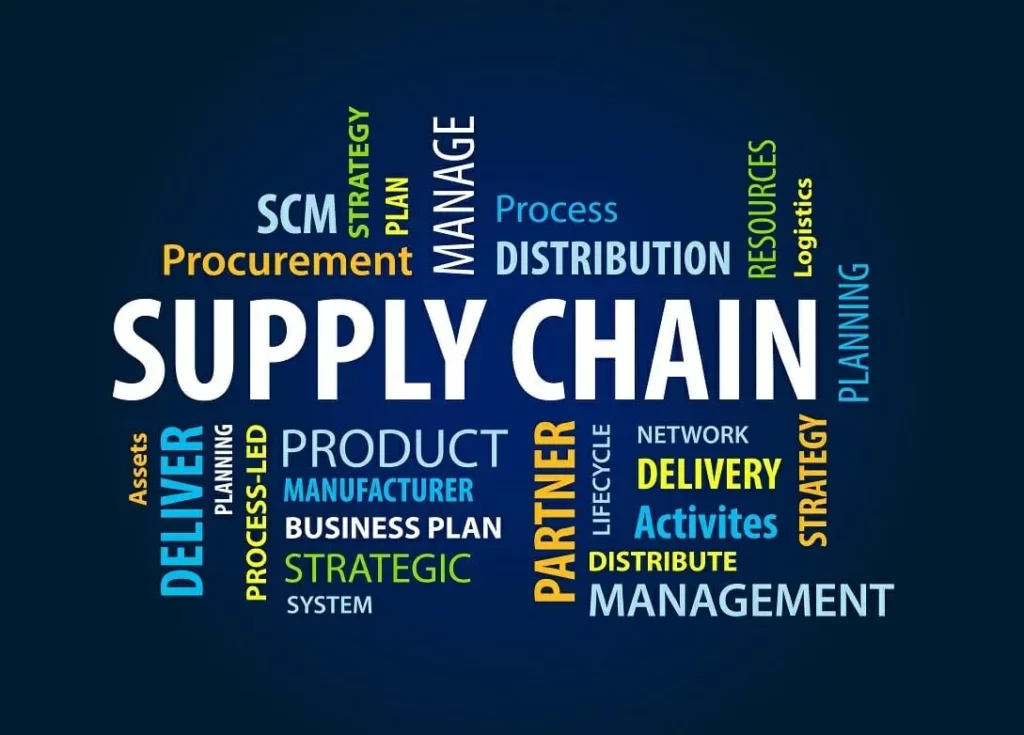Sustainable Value Chain: Why matters and to whom
A value chain is the network of external people and organizations, resources, technology etc. that a company uses, directly or indirectly, to produce a unit of a product or a service and to its eventual delivery to the end-user. Depending upon the nature and size of the business and operations, a company that produces or moves goods of services has a simple or very complex value chain for various functions. For instance, marketing, procurement, suppliers of raw material or equipment, house-keeping services, transportation, logistics, warehousing, digital and cloud services, data management services, cyber security services, etc.
A value chain can be local, regional, national or global. Every organization, whether big or small, whether manufacturing or manufacturing goods has a value chain. All B2B companies are themselves part of the value chain of another company.

Source: https://corporatefinanceinstitute.com/resources/management/value-chain/
In the context of corporate sustainability, large part of a company’s ESG footprint, hence the sustainability risk, is hidden deep within their value chain. GHG emissions in a company’s value chain are, on average, 11.4 times higher than its operational emission[1]. For manufacturing companies, more than 90% of an organization’s greenhouse gas emissions, and 50% to 70% of operating costs, are attributable to value chains[2].
Besides the possibility of the impact of sustainability risk of value chain, a company will fall short of achieving its own ESG goals and commitment, if it does not focus on the sustainability of its value chain. There is enough research that has established that sustainable value chain not helps to reduce the environment and social impacts and also results in economic benefits for an organization due to lowering of operational costs and increase profitability. The need to focus on sustainability of value chain is also becoming a regulatory requirement due to the evolving global and domestic regulatory framework.
Besides the long list of the ESG global and domestic regulatory ecosystem (including UN-SDGs, UNGPs, UN Guiding Principles on Business and Human Rights, OECD Guidelines for Multinational Enterprises, for ESG reporting standards, ESG rating standards etc.), there are various impending jurisdiction specific regulations such as EU’s Corporate Sustainability Reporting Directive (CSRD), France introduced Duty of Vigilance law, German Due Diligence Act, UK’s plastic packaging tax etc.) and sector specific regulations that will affect value chain decisions, operations and sustainability.
Most recent being the EU level, is the proposed directive on corporate sustainability due diligence, involving binding obligations for large firms to identify, prevent and minimize adverse human rights and environmental impacts in value chains. EU in also introducing the Carbon Border Adjustment Mechanism (CBAM) with effect from 1 October 2023 leading from the concerns that trade could undercut climate ambition. Indian Government has sought exemption for MSMEs to insulate them from the burden[3].
All businesses (not only the ones head-quartered in EU) with their footprints in Europe, have already started integrating ESG criteria and covenants at the very sourcing stage (i.e. value chain) with ESG/ sustainability carrying a weightage in the very bidding / selection criterion. Some companies have even included actionable undertakings such as supplier to publishing a decarbonization plan and abiding with ESG roadmap milestones as a contractual obligation under the supplier contracts, non-compliance of which may result in termination and damages.
In summary, it has become business imperative for all Indian companies –
- The large companies to focus on their value chain sustainability and create value chain ESG framework, to ensure access to and compete in global markets by meeting the global norms for products and/or businesses and to meet business’s own ESG goals and commitment; and
- Startups, MSMEs and mid-size, who aim to be value chain to the world, to focus on meeting the value chain specific global norms and regulations.
Companies can begin with their own self-assessment to score themselves against these norms and regulations. There are various global standards and agencies that provide assurance or certification. The best solution always is to integrate the ESG criteria in the very business and strategy by making business sustainability management plan. Meeting the objective KPIs of value chain sustainability will help the businesses meet the universal principles underlying the global and domestic regulations, norms and standards.
[1] https://cdn.cdp.net/cdp-production/cms/reports/documents/000/006/106/original/CDP_SC_Report_2021.pdf?1644513297
[2] https://www.mckinsey.com/capabilities/sustainability/our-insights/starting-at-the-source-sustainability-in-value-chains
[3] https://energy.economictimes.indiatimes.com/news/renewable/india-seeks-exemptions-for-msmes-from-eus-carbon-tax-sources/100117047?utm_source=Mailer&utm_medium=newsletter&utm_campaign=etenergy_news_2023-05-14&dt=2023-05-14&em=VW1hbmcucGF0aGFrQGVzZ2Fkdmlzb3J5c2VydmljZXMuY29t
